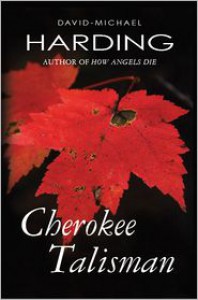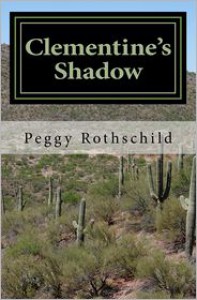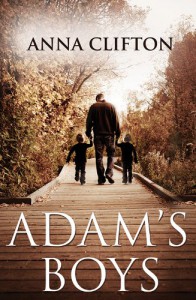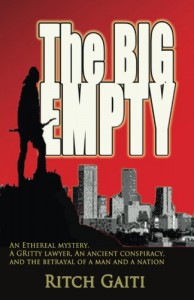Review: An American Bride in Kabul

The blurb for An American Bride in Kabul by Phyllis Chesler is enticing -”Twenty years old and in love, Phyllis Chesler, a Jewish-American girl from Brooklyn, embarked on an adventure that has lasted for more than a half-century. Chesler found herself unexpectedly trapped in a posh polygamous family, with no chance of escape. She fought against her seclusion and lack of freedom, her Afghan family’s attempts to convert her from Judaism to Islam, and her husband’s wish to permanently tie her to the country through childbirth.” Unfortunately it is entirely misrepresented and does not live up to its potential. Instead of telling the story of a Jewish-American girl’s harrowing life in Kabul it tells the story of a self-righteous and selfish young girl who spent 10 weeks in Kabul. The rest of the book is Chesler summarizing other books on Afghanistan, name-dropping other authors and historians and building up her own ego for being a woman before her time.
An American Bride in Kabul is a memoir I was anxious to read. I sought out, and received, an ARC of this novel. I moved it to the very top of my reading list and loved it, for the first 30 pages. My Twitter feed will indicate how immediately I loved Phyllis' story; however my love affair with her memoir ended up being shorter than her love affair with Abdul-Kareem and Kabul. Chesler honestly states that she was young, naïve and foolish when she fell in love with, married, and travelled to Kabul with her Afghan husband, Abdul-Kareem. He was wealthy, highly-educated and presented himself as a westernized foreigner who wanted to whisk her away and travel the world. Instead, they married and travelled to his home in Kabul where almost immediately Chesler began behaving as a spoiled, arrogant, self-righteous American brat.
She spent 10 weeks, yes 10 weeks, in Kabul and yet to read the book blurb, the marketing pitch or her own details of her time there it was as though she wasted away the best years of her life confined away from society. I had expected to read about a young woman who was forced to spend months or years living in a polygamous harem held against her will in a foreign country. I read a completely different story.
Chesler had a very ethnocentric attitude when she arrived in Kabul. She never presented herself as ever being willing to consider their perspective, point-of-view, customs or different way of life. She was very much an egotistical American brat who wanted everyone else to submit to her way of wanting to do things. She didn’t like what they ate so they should cook or buy special food for her. She sunbathed in a “skimpy bikini” (her words) despite knowing that their culture expected women to be covered up. She snuck out of the house to explore alone even after being informed it could bring shame to their family. Her husband began to beat her – or not – she writes that she cannot remember. Her mother-in-law was trying to kill her (this she claimed because she told the cook that Chesler was an Afghan wife and not to cook her special foods). The depiction through the memoir is that Chesler was unwilling to compromise and unwilling to give a new culture a chance. It was her way or it was wrong and that was simply the way it was. She complains about the very few times that she was “allowed” to go out yet she was there for 10 weeks; a foreign woman who did not know the language, would not submit to following the customs of the local culture, was arrogant, rude, self-righteous, demanding, and rebellious.
After her return to the United States (using a passport and a plane ticket given to her by her Afghan father-in-law) her husband, Abdul-Kareem, writes her letters begging for her return. She describes his tone as “ironic, sarcastic, self-pitying, pompous and utterly heart-breaking.” I chuckled. Aside from the “utterly heart-breaking” description it was exactly how I felt about her writing. There are so many problems with this book. The only polygamy is on the part of her father-in-law who has three wives. The “harem” is only that she shares a home with the other female members of the family. The “memoir” part of the book is very short as she spends so much other time talking about her education and referencing other books and quotes. The timeline is jarring as she will move forward two or three years and then backtrack to discuss something that happened only six months after her starting point. All in all, this is an utter disappointment.
Review by Ashley LaMar
Closed the Cover
 “They were blood-thirsty savages - superstitious, dirty animals. They were thieves and killers who burned houses to the ground and kidnapped women and children. They were protectors of a Nation – guerrilla fighters serving their country. They were husbands and fathers who built homes in lush valleys for their families.
“They were blood-thirsty savages - superstitious, dirty animals. They were thieves and killers who burned houses to the ground and kidnapped women and children. They were protectors of a Nation – guerrilla fighters serving their country. They were husbands and fathers who built homes in lush valleys for their families. They were – the same men.
In 1775 perspective came with the color of your skin.”
Due to the depth of the content and the length of the book I had originally anticipated spending at least three days reading Cherokee Talisman but the story is so brutal and compelling that I read through it in a day and a half. It is an intoxicating read – the visualization of the land, the depth of the characters, the brutality of the battles all are simply mesmerizing. A gritty and historical read, I thoroughly enjoyed every page of Harding’s novel.
Historical fiction based around the Native American culture often ensnares a writer into very predictable and trite writing. Most novels will depict the white man = good and Native American = bad or vice versa. Frequently an author of this genre will become complacent with placing the ethnic cultures into one of these two categories and therefore the writing becomes lackluster and the story arc fails. Harding was able to rise above this predictability and present genuine understanding of the strengths and flaws of both cultures. In this manner he writes a novel that is coldly accurate, recreating the history that existed when one nation was born and another almost died.
Cherokee Talisman is Book #1 of a new series by Harding and covers the changing landscape of America from 1775 – 1821. The Cherokee Nation is being forced to relocate, yet again, as white settlers continue to emigrate from Europe. The novel opens after the Cherokee Nation has already given up part of their territory in a treaty with the settlers and they are meeting to discuss a new treaty and a new land exchange. Readers are immediately presented with insight into the cruel and conniving intentions of the white settlers – seduce the simply Native minds with rum, horses and gold. When the old tricks no longer work and the Cherokee stand to retain what is theirs the conflict comes to a head as the Cherokee Nation prepares for war.
It is a harsh and cruel reality of American history. Readers will set helpless as they read about the destruction of a beautiful culture full of tradition and natural beauty. Each side had their own downfall – the pride of the Natives and the greed of the settlers. Cherokee Talisman offers readers a glimpse into the harsh truth behind the settlement of early America and those that had to be destroyed in order for a new nation to be born. It is a vicious story but rich with historical details and incorporating beloved American heroes it is a novel I highly recommend.
Review by Ashley LaMar
Closed the Cover
 The opening lines of A Spear of Summer Grass are enough to entice most readers; they were enough to entice me.
The opening lines of A Spear of Summer Grass are enough to entice most readers; they were enough to entice me."Don't believe the stories you have heard about me. I have never killed anyone, and I have never stolen another woman's husband. Oh, if I find one lying around unattended, I might climb on, but I never took one that didn't want taking."
Based purely on those opening words the story of Delilah Drummond was begging to be read. Her story is predictable and even a bit cliché in parts but she is a pleasurable character with a very complex past. The problem with this book lies with the supporting characters and the some of the content which other readers may find offensive. There are extreme highs and lows within the story leaving this overall a very average read.
The highlight of the novel was Delilah herself. Her mother, referred to as “Mossy” was a scandalous woman who was frequently married and divorced leaving Delilah with no true father figure; they moved regularly as the novel refers to their lives in various countries and continents leaving Delilah with no true stability; she suffers loss and see tragedy at a very young age so is it really any wonder that her character is selfish and cold seeking pleasure without any true emotional attachment? It is natural that Delilah would protect herself by closing off to any emotional connection and instead rely on affairs with married men and marrying for money instead of love. She can’t be hurt if she doesn’t feel. This life works for the young Delilah until she finds herself too deep in scandal after the death of her most recent husband and is exiled to Africa and hidden away on the plantation of one of her previous step-fathers, Nigel. It is only here, in this untamed wilderness, away from the parties and the high society of Paris, that Delilah is able to find a new perspective and open herself up to true feelings of love.
The story itself is a bit cliché in parts. Delilah, one of the few white settlers in a savage Africa finds herself almost immediately inundated by African villagers who look to her as a medical savior. They expect to her to have “white medicine” and be able to heal all of their ailments. Since she worked for four years as a nurse during the war she is able to help them. It is a story arc that was included primarily to show Delilah’s growth and transformation as she grew from a selfish promiscuous tart to a compassionate woman. It is reminiscent of many other African fiction novels and does not offer anything unique to A Spear of Summer Grass. It is a underlying storyline, a mild arc really, that is included to teach Delilah love and compassion. I enjoyed it despite it being a bit formula and predictable.
There are moments in the story that I suspect may offend other readers. During a scene with Delilah and Ryder (another central character – a long-haired and gritty white man prominent in Africa) he threatens her and states that he could have his way with her and then throw her body to the hyenas. Out of context it’s an offensive threat of rape but within the context of the novel it’s an idle threat (considering what the reader has learned of Ryder’s character) that calls attention to Delilah’s promiscuity and her habit of sexually teasing men in order to have them at her beck and call. That may have worked in Paris but she’s now living in Africa and there is a different culture and new threats. The same applies to mentions of domestic violence. The reader must consider the setting, the characters and the intent or it may be offensive.
It’s historic (set in the mid 1920’s), it’s cultural (with a setting in the wilds of Africa) and it tells the story of a young woman who finds her purpose in the most unlikely of situations. It’s worth a read.
Review by Ashley LaMar
Closed the Cover
My Life With Snoopy
 My Life with Snoopy is going to tear apart the heartstrings of animal lovers everywhere. The author, Joey Camen, is best known for his stand-up comedy and voiceover work but in his debut novel he will cause readers to shed more than a few tears as he recounts his memories of life with his shelter dog, Snoopy. It is the iconic tale of a boy (or a man) and his dog – beautiful, entertaining and immensely enjoyable.
My Life with Snoopy is going to tear apart the heartstrings of animal lovers everywhere. The author, Joey Camen, is best known for his stand-up comedy and voiceover work but in his debut novel he will cause readers to shed more than a few tears as he recounts his memories of life with his shelter dog, Snoopy. It is the iconic tale of a boy (or a man) and his dog – beautiful, entertaining and immensely enjoyable.It’s important to realize before reading My Life with Snoopy that isn’t a novel, it isn’t a fictional story and it’s even truly an autobiography or a memoir. It reads like a short non-fiction book about a man coping with the loss of his best friend; it is almost blog-like. There are typos and asides as well as moments where the flow breaks as Joey breaks to mention his feelings or beliefs on veterinary medicine and treatment. If this was intended as a formal book or novel it would require an editor to finesse the writing and streamline the content. It is actually only intended to tell the story of a shelter dog who changed a man’s life, to bring awareness to the plight of the shelter dogs and to encourage people to consider a shelter dog when adopting their next pet. In terms of its intentions, it is a success.
The beginning of the book, Joey’s life before Snoopy, is actually quite hilarious at times. Growing up without a traditional pet (a cat or a dog) Joey sometimes improvised at finding an animal companion. His first “pet” was actually a small collection of slimy, smelly, snails that he brought in from outside. He eventually compromised with his mother and traded the snails for goldfish which then died rather abruptly (as goldfish sometimes do). After an unfortunate experience with a dog in Detroit Joey was a bit disinterested in dogs, until he adopted Snoopy.
One look at the sweet face on the cover and it is easy to see how Snoopy helped Joey overcome his distrust of dogs and learn to love our canine friends. Joey and Snoopy shared adventures and were the best of friends for thirteen years. In a way, and as depicted in this book, Joey and Snoopy saved each other. It is a bond that only a dog-owner can understand but one that is often too powerful for words. Any pet owner will acknowledge that there truly are no words to describe the ache that comes with losing a devoted and beloved pet; the loss of Snoopy is, for lack of a better word, heartbreaking. After reading “My Life with Snoopy” all I could think about was cuddling my own two sweet little pups and cherishing the moments I have to love and be loved by the most devoted and selfless of animals.
Please, follow Joey’s lead and if you’re considering adopting a pet – consider a shelter dog.
Review by Ashley LaMar
Closed the Cover
Mission to Teach: The Life and Legacy of a Revolutionary Educator
 Written by Dipak Basu about his beloved daughter Jhumki, Mission to Teach is a powerful biography about an amazing woman and an inspiring educator. The life of Jhumki Basu was unfortunately cut short after she lost her battle with cancer at the tender age of only 31 yet her accomplishments and the people she touched along the way will forever be blessed simply for having known her. I challenge any reader to read Mission to Teach and not weep for the loss of Jhumki, a true hero in so many lives. Thank you to Dipak for sharing his daughter’s story and providing those of us who were not fortunate enough to know her a brief glimpse into her astonishing life.
Written by Dipak Basu about his beloved daughter Jhumki, Mission to Teach is a powerful biography about an amazing woman and an inspiring educator. The life of Jhumki Basu was unfortunately cut short after she lost her battle with cancer at the tender age of only 31 yet her accomplishments and the people she touched along the way will forever be blessed simply for having known her. I challenge any reader to read Mission to Teach and not weep for the loss of Jhumki, a true hero in so many lives. Thank you to Dipak for sharing his daughter’s story and providing those of us who were not fortunate enough to know her a brief glimpse into her astonishing life.A Professor at New York University, Jhumki Basu was an inspiration to everyone who knew her but especially to her students; the students that so many would have turned from and tried to ignore. Jhumki opened her heart to the students that were homeless, came from low-income backgrounds, minority groups and other social or economic struggles. Her heart was matched in size only by her own ambition and tenacity. She was a beautiful woman both on the surface and in spirit. The world suffered a great loss the day it lost Jhumki Basu. She held a firm conviction in the idea of a lifelong learning and that in order to teach you must be willing to be taught. Following that conviction she became a learner in her own classroom always trying to learn about her students – who they were, where they came from, their background, their culture and what teaching methods were the most effective at reaching them. She worked to understand their strengths and weaknesses so that she could provide them with the best education and opportunities she could. Her methods were focused and impressive. She was an amazing woman.
Dipak’s writing style is unique in Mission to Teach. It does occasionally feel a little disjointed and the flow is interrupted but with a heart-breaking story such as this it’s very easy to overlook. At times it feels as though he is writing to Jhumki as he recounts memories and shares his feelings about his daughter, the life she lived and the pain of her loss. At other times he shares journal entries and e-mails. He also includes interviews with Jhumki’s friends, students and colleagues. I wept openly while reading the interviews; it is amazing to read about how much she meant to the people in her life. It is clear that she will never be forgotten; living on forever in the hearts and memories of those she touched while she was a part of their lives.
Mission to Teach is a moving biography about a revolutionary educator, beloved daughter and friend. She challenged American science education, led reform against deeply-established practices and accomplishing stunning achievements all by the age of 31 and while battling cancer for her last 7 years. She was remarkable. Mission to teach is a wonderful book about a truly incredible woman. Yes, you will weep for the loss of Jhumki but this should be a must-read book.
Review by Ashley LaMar
Closed the Cover
 Mrs. Poe by Lynn Cullen is a fictionalized account of the speculated and oft-rumored love affair between Frances Sargent Osgood and Edgar Allan Poe. While far more rumor than fact it did create an enticing premise for this mysterious and romantic work of fiction. Living in New York City in the mid 1840’s, after being abandoned by her husband Samuel Osgood, Frances (Fanny) is raising her two daughters and trying to earn a living as a poet and writer; Edgar Allan Poe is at the height of his fame with the recent publication of “The Raven” and the two meet at a conversazione of New York literati. After Poe praises her work during a public appearance and later invites her to meet his wife, Virginia, who claims to be an admirer of Osgood’s work the two quickly become friends and confidantes. According to rumors and Cullen’s novel this friendship quickly becomes a torrid love affair resulting in the birth of Osgood’s third daughter.
Mrs. Poe by Lynn Cullen is a fictionalized account of the speculated and oft-rumored love affair between Frances Sargent Osgood and Edgar Allan Poe. While far more rumor than fact it did create an enticing premise for this mysterious and romantic work of fiction. Living in New York City in the mid 1840’s, after being abandoned by her husband Samuel Osgood, Frances (Fanny) is raising her two daughters and trying to earn a living as a poet and writer; Edgar Allan Poe is at the height of his fame with the recent publication of “The Raven” and the two meet at a conversazione of New York literati. After Poe praises her work during a public appearance and later invites her to meet his wife, Virginia, who claims to be an admirer of Osgood’s work the two quickly become friends and confidantes. According to rumors and Cullen’s novel this friendship quickly becomes a torrid love affair resulting in the birth of Osgood’s third daughter. Cullen takes a lot of liberties with the factual history of the relationship between Poe and Osgood. While this is indeed a work of fiction it would have perhaps been better served if the author had held to traditionally accepted fact and taken liberties only by describing how those events occurred. To speculate on flirtation and/or attraction between Poe and Osgood is acceptable however to describe a full affair between the two which resulted in a child may be pushing too far especially when the characters involved are two of literary history’s most beloved authors. The portrayal of Mrs. Virginia Poe, Edgar’s first cousin and young wife, was a disappointment especially considering the book description describes her as, “more manipulative and threatening than she appears.” While she isn’t the child-like and innocent young woman she appears to be she is far from threatening; instead she merely gossips, fuels scandal and makes a few foolish attempts at revenge. She is a fool and hardly a terrifying villain.
The literary parties or “conversaziones” hosted by Margaret Fuller were enjoyable moments in the story. A few of the authors depicted at these events appeared to be written as caricatures of themselves rather than portraying their true selves but I speculate that was to condense the novel. To delve into the personality and life of each author in attendance would have required a massive text. The novel did read, at times, like a who’s who of New York literati and became a bit overwhelming. Throughout the novel I believe Cullen may have mentioned every author living in New York during the 1840’s - Margaret Fuller, Rufus Griswold, Louisa May Alcott, Herman Melville, Nathaniel Hawthorne (in a rather abrupt and forced brush-off by Griswold), William Bryant, Henry Wadsworth Longfellow, etc. It was too much.
In the second half of the book it took a deep turn into the absurdity and, in what felt like a forced attempt to increase the drama in the novel, accident upon accident befalls Fanny Osgood and her children. Set amidst the fascinating world of New York’s literati Mrs. Poe offered a unique view into the life of one of history’s most unforgettable literary figures but it doesn’t deliver. Cullen simply tries to fictionalize too much of the history surrounding two beloved literary icons. As far as Cullen’s writing, it’s beautiful and intoxicating. I fell deeply in love with her style and phrasing; she is a talented wordsmith and I suspect will find much success as an author.
Review by Ashley LaMar
Closed the Cover
Evil Shadows
 Evil Shadows is, unfortunately, a true account of the aftermath of identity theft. It paints a grim portrait as it explains how identity theft can lead to arrest, prosecution and imprisonment of the victim. The victim’s (the author’s) identity was stolen which led to his financial ruin and the closure of his successful publishing company, not because of the theft itself but because of the actions of federal agents and prosecutors.
Evil Shadows is, unfortunately, a true account of the aftermath of identity theft. It paints a grim portrait as it explains how identity theft can lead to arrest, prosecution and imprisonment of the victim. The victim’s (the author’s) identity was stolen which led to his financial ruin and the closure of his successful publishing company, not because of the theft itself but because of the actions of federal agents and prosecutors. This book was received directly from the author in exchange for a review by Closed the Cover. When the book arrived I first noticed the return address was for a city approximately two hours away; the close proximity only increased the anxiety and terror caused by the details of Hallock’s experience. Hallock had a troublesome early youth but he matured, graduated college, married, had a family and ran his own successful business. He was living the American dream until he became a victim of identity theft and he watched his world crumble. He was forced to close his business and his marriage was troubled but worse than the private pain was the criminal investigation as Hallock himself was being investigated for crimes he never committed. Guilty until proven innocent the worst of this experience was not the financial impact but the fear of being sent to prison despite being an innocent victim.
It is a terrifying reality and one that is so easily overlooked. The focus, whenever there is a discussion of the perils of identity theft, is almost always financial. The advice is always the same – check your credit report, dispute accounts that are suspect, put alerts on your credit cards, keep your credit card numbers and associated customer care telephone numbers in a safe so you can call to cancel them in the event they are lost or stolen – but how often are you informed of how to recover from an identity thief who steals an identity and then uses it to perpetrate cybercrimes?
Evil Shadows is an exhausting and harrowing account of a man trying to regain his own life and forced to fight to prove his innocence after becoming the primary suspect in a worldwide federal investigation into child pornography. It’s a terrible tale made even more horrific by the constant realization that this is all true and that Hallock was an unfortunate victim of truly awful events. There are time when the tone of the book is heavily bitter but, considering the circumstances, is completely understandable. Evil Shadows should be a must-read on everyone’s list. It offers insight into the severe consequences of identity theft, well beyond the financial, and the possibilities are terrifying.
Review by Ashley LaMar
Closed the Cover
 Officer Brett Reed just can’t catch a break. First, a man-hating judge grants custody of Brett’s 5-year old daughter Quinn to her drug-addicted alcoholic mother (Ali), grants Ali a protective order and orders Brett to complete anger-management courses after he loses his temper over the custody ruling. Then, after Quinn is found wandering alone through the streets, she is placed in a temporary foster home for a few days while Child Protective Services (CPS) completes their assessment of Ali and Brett. After rumors begin swirling that CPS took Quinn because Brett had molested her a few days in foster care may be a few days too long. CPS is overworked, Quinn’s foster mother is incompetent and there is someone on the loose attacking pedophiles; with Brett now rumored to be a pedophile himself will he be able to clear his name and reunite with his daughter or will he be yet another victim of “The Whacker”?
Officer Brett Reed just can’t catch a break. First, a man-hating judge grants custody of Brett’s 5-year old daughter Quinn to her drug-addicted alcoholic mother (Ali), grants Ali a protective order and orders Brett to complete anger-management courses after he loses his temper over the custody ruling. Then, after Quinn is found wandering alone through the streets, she is placed in a temporary foster home for a few days while Child Protective Services (CPS) completes their assessment of Ali and Brett. After rumors begin swirling that CPS took Quinn because Brett had molested her a few days in foster care may be a few days too long. CPS is overworked, Quinn’s foster mother is incompetent and there is someone on the loose attacking pedophiles; with Brett now rumored to be a pedophile himself will he be able to clear his name and reunite with his daughter or will he be yet another victim of “The Whacker”?Weidenbenner deserves to be commended for tackling such delicate subjects in her novel and for delivering a story written with sensitivity and compassion. The constant theme throughout the novel was protection – Brett wanting to protect his daughter Quinn, Sarah (the CPS worker) wanting to protect all children from heartache and harm, “The Whacker” wanting to protect children from pedophiles. It’s a great story idea and it’s a good read; one that most readers will enjoy.
The point-of-view throughout the novel alternates between first-person perspective through the eyes of “The Whacker” and third-person detailing the events as they affect the rest of the written cast. It is a less common style of writing however it works in Cache a Predator. The downside to this POV is that the insight it provides into the mind of “The Whacker” greatly reduces the amount of tension associated with the character. There are plotlines that would be more intense if the reader was not given this insight; as written the reader isn’t given much cause for concern as the prevailing feeling is, “Oh, the whacker wouldn’t do that. It’s not his/her motivation.”
Aside from a few moments involving supporting characters the plot itself is rather predictable. It follows a familiar formula and it’s easy, with a small bit of analytical thinking, to deduce the identity of “The Whacker” and to predict the ending of the story. The ending will most likely be a point for discussion as there will be readers who love the resolution of “The Whacker” and there will be others, like myself, who feel as though the ending was the easy way out. The ending fits within the story and it doesn’t deviate from the tone of the novel but it does allow the entire conflict to wrap up with a neat little bow. The novel also feels like it continued for a chapter or two too long. The pacing became a bit awkward toward the end as the first 90% of the novel took place over a matter of a few days however the last 10% of the novel covered a period of approximately 6 ½ months. The last few chapters flashed ahead by a period of days…weeks…months to provide the reader a glimpse into the characters futures. It could have easily ended following the immediate resolution with “The Whacker” and then included an epilogue to wrap up the conclusion. Whether or not the ending is great will come down to the individual reader’s preference.
The intensity is born from the subject matter and may not appeal to all readers but overall Cache a Predator is a good crime thriller and most readers will enjoy it. Despite the subject matter it is an easy read and can be read over a period of 1-3 days. If you’re looking for a mystery or crime thriller I recommend picking it up.
Review by Ashley LaMar
Closed the Cover
 Sebastian, the second book in Christoph Fischer’s Three Nations Trilogy will steal the heart of readers almost immediately. Young Sebastian, a misunderstood and bookish teenager, loses the lower part of his leg after an infection sets in and takes over. With the support and the love of a kind-hearted nurse, Liesl, and a supportive grandfather, Oscar, Sebastian works to overcome his new handicap and manage the family business after his father is drafted to fight in World War I. He eventually grows into his responsibilities but struggles with doubt and uncertainty as he tries to understand himself and, hopefully, find love.
Sebastian, the second book in Christoph Fischer’s Three Nations Trilogy will steal the heart of readers almost immediately. Young Sebastian, a misunderstood and bookish teenager, loses the lower part of his leg after an infection sets in and takes over. With the support and the love of a kind-hearted nurse, Liesl, and a supportive grandfather, Oscar, Sebastian works to overcome his new handicap and manage the family business after his father is drafted to fight in World War I. He eventually grows into his responsibilities but struggles with doubt and uncertainty as he tries to understand himself and, hopefully, find love.Fischer’s first novel in the Three Nations Trilogy, “The Luck of the Weissensteiner’s” is a tragic love story between a Jewish woman and a German man whose love and marriage crumbles during the onset of World War I. In “Sebastian” Fischer goes back in time and over to Vienna, Austria to describe the life of a multi-generational Jewish family during the Golden Era of Vienna. The Schrieber family are a lovable group of characters and realistically flawed. Sebastian’s father and grandfather worked incessantly to build a prosperous life for their family and have faced struggles as new competing businesses have moved in, the grandparents begin to experience failing health and then Sebastian loses his leg which adds additional expenses onto an already strained family budget. Sebastian is a wonderfully written character. Initially he keeps his spirits up and is determined to overcome the challenges of losing his leg but additional surgery, time off from school and his father being drafted into World War I all take a toll on the fragile young man. As the struggles mount and the family experiences tragedy after tragedy Sebastian finds himself swimming in a sea of self-loathing despite the optimism of the people around him. He continues to move forward but it’s a constant struggle. Most of the characters in Sebastian are well-imagined by Fischer although there are a few that seem to have been added in as an afterthought or merely to expand the cast. They didn’t detract from the story but they didn’t add to the story either. They could have been omitted and the text would not have suffered.
Sebastian reads a bit slow and stilted during the beginning of the novel. It takes approximately 50 – 70 pages before Fischer finds his voice and the novel hits its stride. It isn’t a challenging read in the beginning but with so many personalities and story to set-up the flow is a bit disjointed. Once it begins moving along and the story grows the reader will find themselves entranced! The historical details are beautifully told. Fischer is a very talented wordsmith and, with Sebastian, has written two enthralling historical fiction novels. I have yet to read the third novel in the Three Nations Trilogy but if the first two novels are any indication it will also be a must-read!
Review by Ashley LaMar
Closed the Cover
 Bruce Springsteen played an epic concert behind the Iron Curtain, in East Berlin, in 1988. A short 16-months later the wall came crumbling down. Did Springsteen’s concert contribute to the fall of East Berlin? That is the question Kirschbaum investigates in his new novel, “Rocking the Wall.” Whether Springsteen’s concert, and powerful mid-concert speech, did empower the German people to fight back and regain their freedom, or not, is debatable but the facts provided in Kirschbaum’s book are interesting to consider.
Bruce Springsteen played an epic concert behind the Iron Curtain, in East Berlin, in 1988. A short 16-months later the wall came crumbling down. Did Springsteen’s concert contribute to the fall of East Berlin? That is the question Kirschbaum investigates in his new novel, “Rocking the Wall.” Whether Springsteen’s concert, and powerful mid-concert speech, did empower the German people to fight back and regain their freedom, or not, is debatable but the facts provided in Kirschbaum’s book are interesting to consider. During a cab ride in Germany after a 2002 concert Kirschbaum engages the cab driver in a conversation which quickly turns into a trip down memory lane as the driver reminisces about a day, in November of 1988, when Bruce Springsteen inspired the people of East Berlin to protest communism and reunite Germany. His description of the electric concert inspired Kirschbaum to begin the research which ultimately leads to this novel, Rocking the Wall. It is fascinating insight into one of the most politically charged events in recent history – the division of Germany and the Berlin Wall. While Kirschbaum was not able to interview Springsteen or any member of the E Street Band for the novel but with over 300,000 people in attendance that day he was able to speak with others who either worked, or attended, this epic event. The memories are all the same – Springsteen’s music, lyrics, energy and pro-freedom speech fueled the fire of freedom that was burning in the belly of East Berlin residents. This is not to say that Springsteen’s concert caused the fall of the Berlin Wall but merely that his concert and message contributed to the changing culture of the people living behind the wall.
Rocking the Wall isn’t so much a book determined to credit Springsteen for reuniting Germany as much as it is insight into the power of music to influence people. Springsteen’s music has always been known for being gritty and for telling the story of hard work, determination and overcoming obstacles. His message was always about not letting others hold you down or hold you back. His music spoke to the dying passion of the East Berlin people and reminded them that they had to fight for their freedom, fight against communism and fight to reunite Germany. Would the Berlin Wall have fallen without Springsteen’s concert? Probably. Would it have happened as quickly as it did or would the people have been as inspired? Maybe. Should Springsteen’s concert be included as one of the many events that contributed to this event in Germany’s history? Yes and Kirschbaum’s novel presents a rather compelling case for it.
Review by Ashley LaMar
Closed the Cover
 After moving to the California High Desert for a new start, Deputy Casey Lang faces a hard truth: she must work through her fear of shooting another child or kiss her career goodbye. The disappearance of a six-year-old girl from a summer concert puts Casey's resolve to the test. Casey hunts for a predator in a scorched landscape of played out silver mines and dry riverbeds. As the temperature rises, three unlikely heroes emerge to help. Set in a scorched landscaped of played out silver mines and dry riverbeds, Clementine's Shadow tells the story of a child snatched by a predator and the desperate hunt to find her.
After moving to the California High Desert for a new start, Deputy Casey Lang faces a hard truth: she must work through her fear of shooting another child or kiss her career goodbye. The disappearance of a six-year-old girl from a summer concert puts Casey's resolve to the test. Casey hunts for a predator in a scorched landscape of played out silver mines and dry riverbeds. As the temperature rises, three unlikely heroes emerge to help. Set in a scorched landscaped of played out silver mines and dry riverbeds, Clementine's Shadow tells the story of a child snatched by a predator and the desperate hunt to find her.Clementine’s Shadow is a novel that will sneak up on an unsuspecting reader and end with a twist and a bang. The plot begins a little slow and introduces far too many characters to keep organized but push through the set-up because once Rothchild get to the heart of the novel it becomes a mystery very much worth reading. During the first 1/3 of the novel so many characters are introduced to the reader that it becomes a bit burdensome to sort out and remember. Once the characters are fully fleshed out and fall into their role in the story they become easier to identify but they are a bit muddled for a few chapters. The novel would probably be a better read with fewer characters to follow, after all a few of the early characters do seem to simply disappear and are never heard from again, but for Rothchild’s first novel this is great work.
The story and the mystery therein are well-written. Rothchild delicately addresses the subject of child abduction and child predators while still managing to script a deep and intriguing mystery. With so many characters involved in the novel it is a challenge for any reader to solve the who-dun-it before the end. There are simply too many suspects and too many possibilities. In the end, the novel wraps up with a twist that readers won’t see coming and ends with a satisfying conclusion. Reader’s won’t be disappointed when the close the cover on this one!
As mentioned earlier, readers may find this mystery a little bit challenging to get into at the beginning but it’s worth persisting. Once the mystery opens up it becomes a very enticing read! Rothchild’s descriptions of the California desert will transport the reader into Deputy Lang’s world and it’s a journey worth taking.
Review by Ashley LaMar
Closed the Cover
 Queen’s Gambit by Elizabeth Fremantle highlights the life of Katherine Parr, a twice widowed and educated woman who married King Henry VIII despite being in love with Thomas Seymour. She holds the distinction of being the only wife of King Henry VIII to survive her marriage to him. Parr is also the least-known of King Henry VIII’s wives and little has been written about her which only adds to the interest and intrigue of Fremantle’s book. Overall, it is an interesting perspective on a lesser-known woman who survived a frightening marriage during a very popular historical time period. There are historical errors and flaws in the book but it is a worthwhile read and one I believe most readers would enjoy particularly those interested in historical fiction.
Queen’s Gambit by Elizabeth Fremantle highlights the life of Katherine Parr, a twice widowed and educated woman who married King Henry VIII despite being in love with Thomas Seymour. She holds the distinction of being the only wife of King Henry VIII to survive her marriage to him. Parr is also the least-known of King Henry VIII’s wives and little has been written about her which only adds to the interest and intrigue of Fremantle’s book. Overall, it is an interesting perspective on a lesser-known woman who survived a frightening marriage during a very popular historical time period. There are historical errors and flaws in the book but it is a worthwhile read and one I believe most readers would enjoy particularly those interested in historical fiction.The prologue sequence which portrays the passing of Katherine’s second husband should be emotional but it never pulls the deep emotion from a reader like it should instead it falls just a little bit flat. It’s a great sequence and it provides excellent insight into Katherine’s religious convictions and faith. Her struggle over the loss of her husband is rooted in religion and faith. Historically there are a few historical inaccuracies in the beginning of the book. It may be enough to discourage readers who thrive on history over fiction in historical fiction novels but if a reader is able to embrace the fiction side of the story and enjoy the speculation into the life of this incredible woman the book becomes a story very much worth reading.
For the most part the pacing is good, especially in the latter part of the book. The beginning of the book is a bit plodding and a lot of that is probably due to the amount of backstory Fremantle includes and the introduction of characters such as Meg (Katherine’s stepdaughter) and Dot (Katherine’s handmaid). It becomes tedious in parts but it passes rather quickly and once the story picks up it becomes captivating and solid. There are also a few instances where a storyline feels rushed just to move the story along and those moments lack proper exploration. For instance, when Katherine first meets Thomas Seymour it’s a brief meeting yet they each feel deeply and hopelessly in love. Their relationship, considering its significance to her life, should have been properly introduced to the novel. Instead, it felt like a plot point simply to progress the story and move along to Katherine’s marriage to Henry.
Queen’s Gambit is primarily told from the perspective of Katherine Parr herself although it does occasionally switch to the POV of Dot, Katherine’s handmaid. The purpose is to provide additional perspective on Katherine’s life yet with every transition between Katherine and Dot the reader disconnects just a little from the fluidity of the story. The story arc becomes momentarily disjointed and it does distract from the novel. It would have been preferable to tell the story either completely from Katherine’s POV or third-person omniscient for full disclosure.
I believe this is Fremantle’s debut novel and for a first published work it is quite good. There are historical flaws in the beginning but overall it is historically sound and the dialogue is near flawless. It is rare to find a historical novel that captures the proper dialogue and vocal note of an era without sounding cliché or exaggerated. Despite taking the occasional liberty with fact, Queen’s Gambit is a wonderful novel that is sure to be enjoyed by most historical fiction fans.
Review by Ashley LaMar
Closed the Cover
Adam's Boys
 Dealing with the grief of losing his beloved wife, Ellen, Adam Cooper leaves his 3-month old son with his parents and flees the UK and heads to Australia to work out of the foreign office and try to heal. He finds his healing during a three week fling in the arms of Abbie McCarthy. It was the wrong girl, for the wrong guy, at the wrong time, and neither were ready for a relationship. When Adam returns to Australia on a business trip four years later, and finds Abbie with a 3-year old son, long-held secrets come tumbling out. Adam is determined to be involved in the life of his newly discovered son but can he overcome so many obstacles - the death of his former wife, a broken-hearted Abbie, two lovable little boys and the distance of many, many miles?
Dealing with the grief of losing his beloved wife, Ellen, Adam Cooper leaves his 3-month old son with his parents and flees the UK and heads to Australia to work out of the foreign office and try to heal. He finds his healing during a three week fling in the arms of Abbie McCarthy. It was the wrong girl, for the wrong guy, at the wrong time, and neither were ready for a relationship. When Adam returns to Australia on a business trip four years later, and finds Abbie with a 3-year old son, long-held secrets come tumbling out. Adam is determined to be involved in the life of his newly discovered son but can he overcome so many obstacles - the death of his former wife, a broken-hearted Abbie, two lovable little boys and the distance of many, many miles?This is a clean and lovable romance novel. There is the innuendo of sexual activity but it is rare and very lightly implied. Any reader seeking explicit sexual descriptions will be disappointed however readers who prefer the romance and emotional connection between characters will enjoy the story. The relationship between Adam and Abbie was tumultuous as they are both deeply scarred by their past. Adam feels guilty over the death of his wife, Ellen. Abbie struggles with issues of trust and abandonment due to her family history. Then, there are those two little boys who so desperately want everyone together for a happy family life. Any parent, but especially a single parent, will easily identify with the two adorable little boys in the book. There are frustrating moments and behaviors on the part of both main characters and the book description is a bit misleading. There is never any “blackmail” attempt by Adam toward Abbie. He proposes two options to resolve the issue of him being able to see his son and she chooses the one she finds less disagreeable. I wouldn’t consider any action on the part of Adam to be even close to blackmail. There are incidents throughout the book that highlight flaws in both Adam and Abbie but that is why the romance between the two characters works.
The pacing of the novel is good but it can be a little fast during parts of the novel and there are a few points where the story skips ahead by a few weeks or months. The biggest issue with the pacing is that the conflict is never really given the time it needs to build tension and create drama. When a tense moment is developed it happens quickly and then is resolved within just a few pages. It happens repeatedly during nearly every tense situation. The reader isn’t really given the time to feel anguish for the characters because the conflict wraps up so quickly. There is plenty of conflict throughout the novel though so it’s never lacking, it’s just quickly resolved.
Overall, Adam’s Boys is an easy read and the two little boys, Pete and Henry, are the highlight of the novel. They are adorably written and will tug at the heartstrings of every reader. It’s a light (non-erotic) romance and a quick book to read. It is an emotional story, on behalf of all of the characters, and one I feel most readers will enjoy.
Review by Ashley LaMar
Closed the Cover
How to Receive Free Groceries
 In How to Receive Free Groceries, Sarah Holmes describes various ways the reader can receive coupons for free groceries. She explains the methods she has successfully used to request coupons from manufacturers, which she then uses to obtain the best possible savings on her grocery bill. She also relates the best way to use regular coupons in conjunction with store sales to get the optimum savings.
In How to Receive Free Groceries, Sarah Holmes describes various ways the reader can receive coupons for free groceries. She explains the methods she has successfully used to request coupons from manufacturers, which she then uses to obtain the best possible savings on her grocery bill. She also relates the best way to use regular coupons in conjunction with store sales to get the optimum savings.This book, at less than 100 pages, was very easy to read in a morning. It appears to be self-published, as there were a few grammatical errors and structure problems. The flow was a little disjointed, as she jumped from one thought to another and then back to the first thought, and it did have a blog-y type of feel to it. However, she did provide some sound information on how to approach companies to request coupons for their products. She does include some sample letters to send to get the reader started, and offers tips on where to send your requests.
If you are a beginner at couponing, this book does offer some sound information on how to get started. It explains the usage of a stockpile and she does encourage the reader to donate any extra products they are able to obtain for free or nearly free to a charity. The book does read like an episode of Extreme Couponing, but a beginner may find it useful. I did check all the websites she listed in the book and all are functioning websites at the time of this review.
Review by Rebecca Kinnie
Closed the Cover
The Big Empty: A Thriller Mystery
 Rick Wallace is a haunted man. He has taken refuge in the desert town of Tecumseh, Arizona, following a traumatic personal experience in New York. An attorney by trade, Rick spends most of his time drowning in scotch, trying to dull the memories of his time in New York. After a particularly aggressive bender, he awakens to two strange men in his office. These men need him to retrieve an important document for them – in New York. The promise of a large payday overrides his better judgment and he reluctantly heads for New York. He is hopeful that he will be able to get in, get what he needs, and get out quickly. He is very wrong.
Rick Wallace is a haunted man. He has taken refuge in the desert town of Tecumseh, Arizona, following a traumatic personal experience in New York. An attorney by trade, Rick spends most of his time drowning in scotch, trying to dull the memories of his time in New York. After a particularly aggressive bender, he awakens to two strange men in his office. These men need him to retrieve an important document for them – in New York. The promise of a large payday overrides his better judgment and he reluctantly heads for New York. He is hopeful that he will be able to get in, get what he needs, and get out quickly. He is very wrong.Forced to confront the events in his past that sent him spiraling into despair, Rick realizes that the document he has been sent to retrieve is not what he believes it to be. It is not even close. With the help of an eccentric Columbia Law professor, Rick finds that the document is tied to his past, and that it exposes a vast conspiracy, extending from the top levels of New York society all the way back to the first residents of Manhattan Island, the Lenape Indians. Ricks own Native American ancestry - and the visions that go along with it - become more and more important to unraveling the mystery. As he unravels this mystery, Rick finds that he has to face head on the people from his past who were involved in the event that changed his life. As he does, he finds that what he believed to be true is not, and what he thought happened did not happen as he remembers. As he is forced to reevaluate all that he has held to be true, one last shocking twist leaves him wondering if the past 10 years happened at all.
Ritch Gaiti is, in a word, a genius. He has masterfully created a character that is so flawed, yet so relatable, that you feel like you know him. Your heart aches for the personal hell that Rick cannot escape. This story advances at a breakneck speed, with so many twists and turns that you feel like you have been trapped on a runaway train that spits you out breathlessly at the end. Gaiti’s writing style sucks you in so completely that you feel like you are right there running alongside Rick as he hurtles through Manhattan, trying to make sense of a seemingly senseless puzzle. As Rick’s memories come flooding back to him, the reader relives them with him, until you are left feeling that these were your experiences and your memories. This all leads up to the final plot twist that makes you feel like you were sucker punched and are left asking “What the hell just happened?”
I cannot recommend this book highly enough. Ritch Gaiti is one of those rare authors that has the ability to create a world and immerse his readers into it. I look forward to going back and reading this book again to fill in the blanks that I missed the first time I read it. Bravo Mr. Gaiti! This one is a winner.
Review by Rebecca Kinnie
Closed the Cover
Colossus: Stone and Steel
 It is 66 AD when a legion of Roman warriors suffers a catastrophic defeat at Beth Horon; a defeat handed to them by an angry band of Hebrews armed only with slings and spears. The Judean warrior, Judah, also succeeded in taking the Roman eagle which dealt the ultimate blow to the Roman legion. The Judean’s, knowing that Emperor Nero would certainly bring a swift and merciless revenge, must now decide how to protect their lands against the inevitable Roman invasion.
It is 66 AD when a legion of Roman warriors suffers a catastrophic defeat at Beth Horon; a defeat handed to them by an angry band of Hebrews armed only with slings and spears. The Judean warrior, Judah, also succeeded in taking the Roman eagle which dealt the ultimate blow to the Roman legion. The Judean’s, knowing that Emperor Nero would certainly bring a swift and merciless revenge, must now decide how to protect their lands against the inevitable Roman invasion. Colossus: Stone and Steel is a historical fiction about the Roman and Judean war. The war details were intense and gripping. The opening battle sequence, the one at Beth Horon, is vivid and sharp immediately drawing the reader into the action and building a relationship between reader and the characters. The battle scenes may be too much for some readers but they are strikingly accurate and fully necessary to the development of the story. The plot develops outside of the war as well taking place both throughout Judea and in Rome. The story alternates between the Judean preparation for war and the Roman preparations for revenge. Blixt does a great job of alternating between the two perspectives and providing insight into the beliefs and cultural aspects of between the two sects.
Judah ben Matthais begins the story as a simple mason. His brothers are dead, his twin brother Asher believed to be recently perished at war, his father dying of a stroke and Judah’s request for the hand of his beloved Deborah has been denied yet again. All hope for a happy life seems lost when Judah throws himself into the tumultuous action at Beth Horon. His bravery during the battle, and his capture of the Roman eagle, has him declared the hero of Beth Horon. A simple mason soon finds himself in the midst of war fighting alongside priests, revolutionaries, generals and nobles. The character development of Judah is the highlight of the book. All of the characters are well-scripted but Judah rises above all others as the best character in the novel. The others – Levi, Yosef and others that won’t be mentioned due to the possibility of unveiling spoilers – are all multi-dimensional and complex.
The issue with this book is the amount of errors, misspellings and omitted words. For example, at one point it is written that, “…sister had died just recently died.” and at another, “but Titus knew she was the moment the dinner was finished, she and her father would…” and at yet another, “…noting the neighborhood they were entering entered.” There isn’t an overwhelming large number of errors but the errors that are present are glaring and disrupt the flow of the storytelling. These errors are the only real flaws in the book. This review is based upon the Kindle version of the book and therefore statements regarding the typography errors may not be applicable to print versions or later releases.
In the end, Colossus: Stone and Steel is a great historical fiction and one that is recommended for readers who enjoy a brutally accurate depiction of the Roman-Judean war. While this novel does relate to the Judaism and there is mention of the Lord in relation to the Lord’s protection, valor, favor and guidance it is not to be considered a Christian fiction or certainly does not preach faith to the reader. It captures and presents a time period and a specific moment in history rather than pushing religion. It is the story of a culture fighting for their own protection and honor. Overall, a great novel.
Review by Ashley LaMar
Closed the Cover




